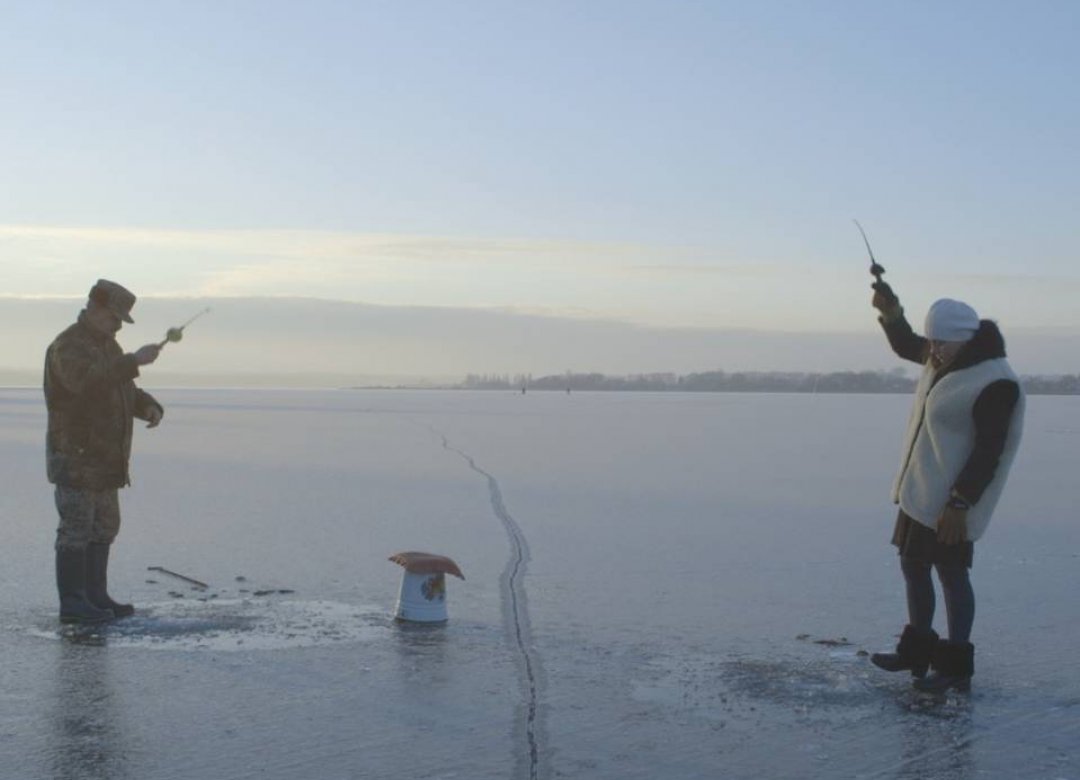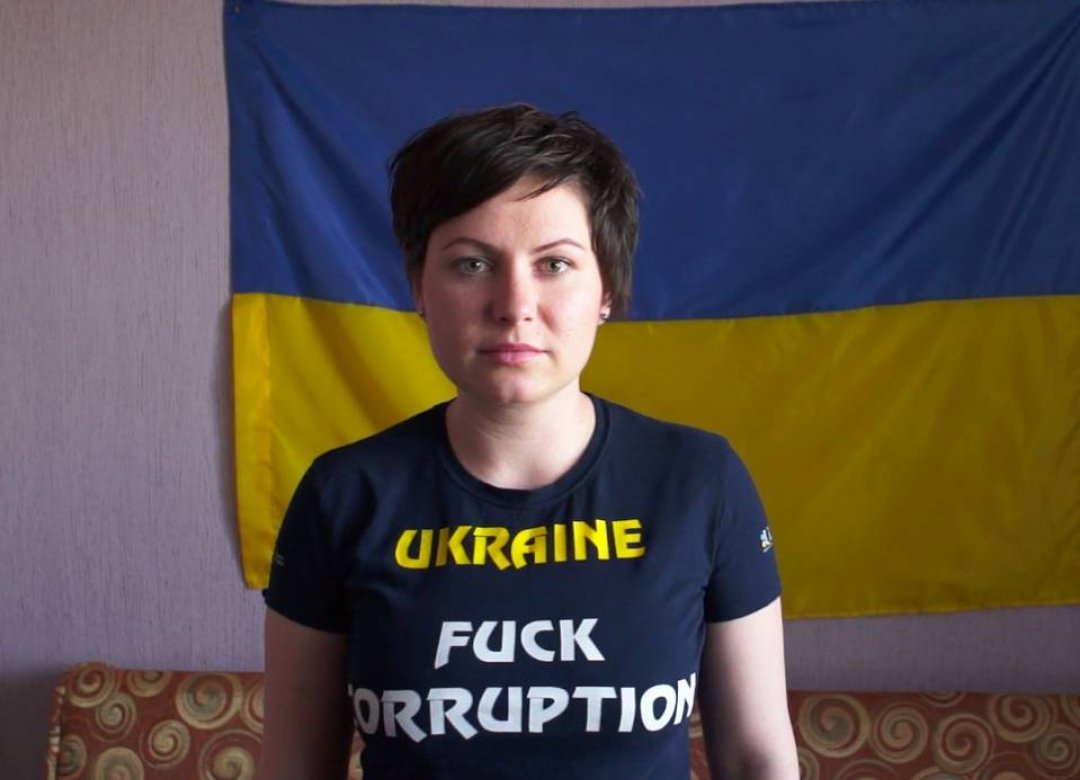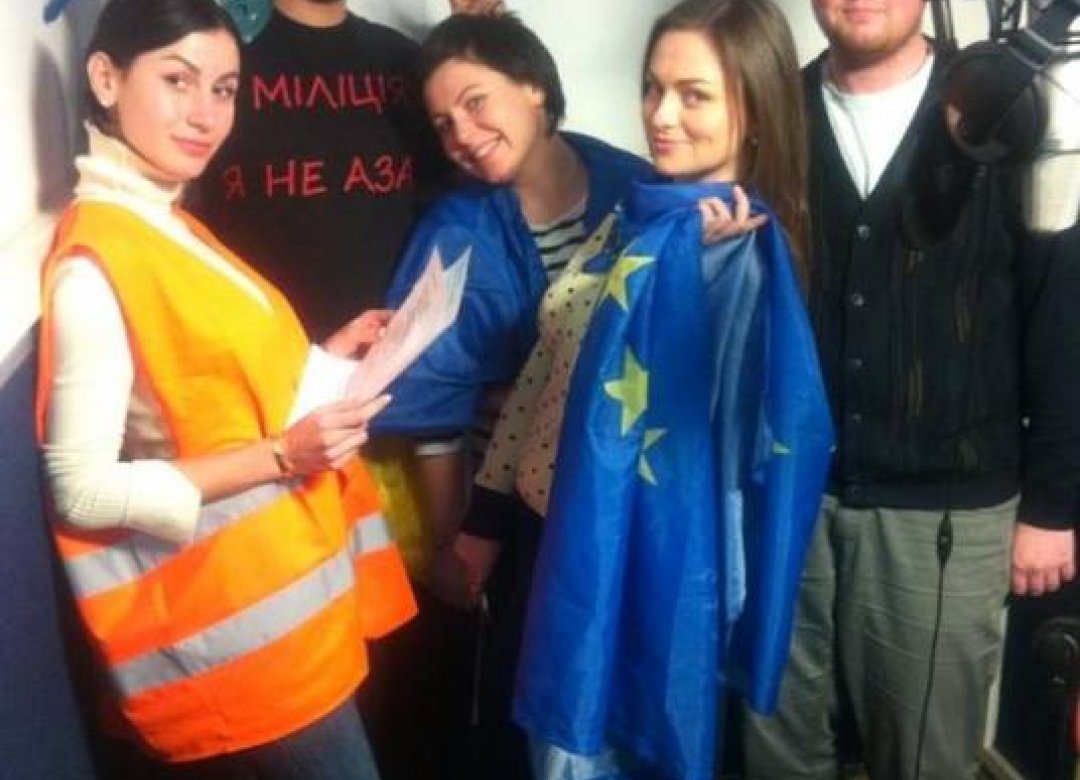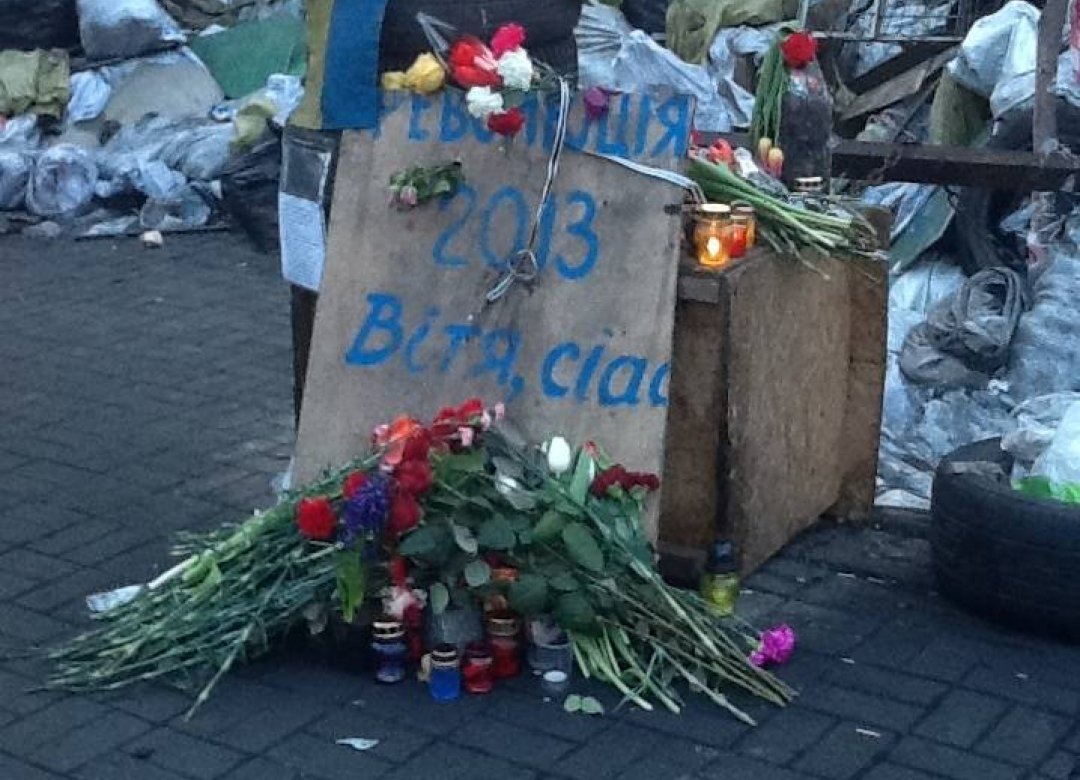Synopsis
During the Ukrainian Euro-Maidan revolution a young journalist Azad, decide to create a song that would keep people together and will continue fighting for their ideals. An Italian song Bella Ciao became an inspiration to him. He named his version Vitia Ciao which was supposed to mean a symbolic farewell to Viktor Yanukovych. Iryna, a young activist who participated in the protests from the first day of the revolution, was the author of the lyrics. The song was sung by Olga, who had not actively participated in the revolution as yet. It was all made in one day in underground conditions. The song very quickly became an unofficial anthem of the revolution. Its lyrics could have been heard not only in Maidan, the heart of the revolution, but also in the whole country as well as during the demonstrations all over the world that supported Ukraine.
Iryna, Azad and Olga are people who were united by the fight for truth and freedom. But after the revolution ended and the beginning of the new Ukraine started, their ways took completely different pats.
According to Iryna, the revolution never ended. The changes do not only concern the political system but also the mentality of people, that is still too connected with Russia.
Azad is a Muslim who comes from Azerbaijan, but he claims that he feels Ukraine is his motherland. He transferred himself as the reporter who specially work in the east Ukraine. I'd like to continue following his path and see why a non Ukrainian citizen is sacrificing his life for freedom of foreign country.
When the revolution was over, Olga went back to her normal life routine. But the war in eastern Ukraine doesn’t allow her to be indifferent. The only weapon she has is her passion to music, which she wants to use one more time. She thinks that the national anthem must be more radical to help the nation during the war.
The movie tries to answer the question what nationalism and self-identification mean for young people during the war time.
Iryna, Azad and Olga are people who were united by the fight for truth and freedom. But after the revolution ended and the beginning of the new Ukraine started, their ways took completely different pats.
According to Iryna, the revolution never ended. The changes do not only concern the political system but also the mentality of people, that is still too connected with Russia.
Azad is a Muslim who comes from Azerbaijan, but he claims that he feels Ukraine is his motherland. He transferred himself as the reporter who specially work in the east Ukraine. I'd like to continue following his path and see why a non Ukrainian citizen is sacrificing his life for freedom of foreign country.
When the revolution was over, Olga went back to her normal life routine. But the war in eastern Ukraine doesn’t allow her to be indifferent. The only weapon she has is her passion to music, which she wants to use one more time. She thinks that the national anthem must be more radical to help the nation during the war.
The movie tries to answer the question what nationalism and self-identification mean for young people during the war time.
Gallery



